Self-discovery is endless, and personal identity is a thread which requires a lifetime to unravel.
For Linda Nguon, born and raised in France, the decision to leave Europe at age 24 transpired into an eight-year career across Asia which brought her closer to her heritage as an overseas Vietnamese – and unwittingly revealed a thread of her parents’ Cambodian history which she’d never thought to question.
Five years after returning to France, Linda is now the founder and producer of Banh Mi Media, building a network which helps to bridge the complexities of balancing different cultures among diaspora communities. The community now reaches a community of more than 60,000 listeners, viewers and subscribers, racking up a total of 7 million views since its inception in 2020.
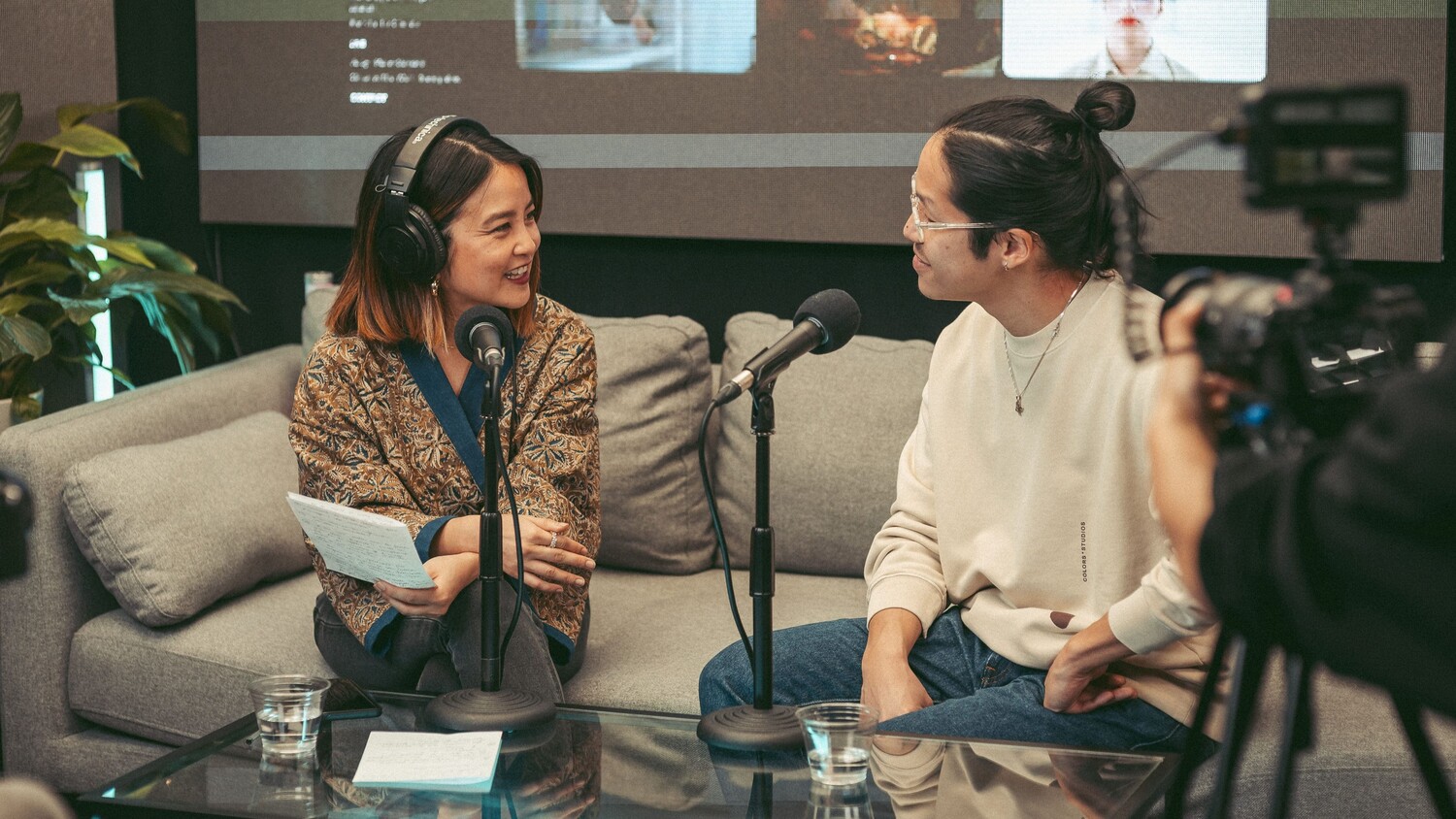
“I am the sum of my explorations, and the sum of all the countries I’ve experienced,” Linda says.
According to Linda, her move to Asia was as much about “returning home” as it was about shining a light on who she was and could be, regardless of physical context.
“Moving to Asia was not just about returning “home”, but also about going to a space where you don’t really know who you are. You can always connect with your identity, even if it’s not your home, because you are exploring and challenging yourself in a space you’re not familiar with.”
“Ultimately what I realized was how French I was, and at the same time how Asian I was.”
Below is an excerpt of our conversation on the “journey home” and what it means to embody all of your identity as an overseas Vietnamese.
You left France for Asia at the age of 24 and ended up staying there for 8 years – what sparked the decision to leave? What do you think you were searching for?
I think there’s always been a part of me of being away since very young. My parents got divorced and then my mom took care of me by herself by running an Asian restaurant. A lot of our parents from this generation who were escaping from their country ended up in France. And the first thing that you can do as a refugee is to cook. Because you probably don't know how to speak the language or you’re not as well educated.
Running a restaurant takes a lot of time – almost seven days a week. So she couldn’t help me with my homework or go on holidays with me and so on. She took care of me by making sure I was in good hands with my aunties or cousins, or whoever was around. So I was never really home – always somewhere else, even growing up.
And there was something in me that I wanted to explore, away from France.
I had a chance to see what life was like outside of France when I was young, and that was something really exciting for me. It was a big reason why I decided not to start my career in France after getting my degree. It was challenging, but also very stimulating.
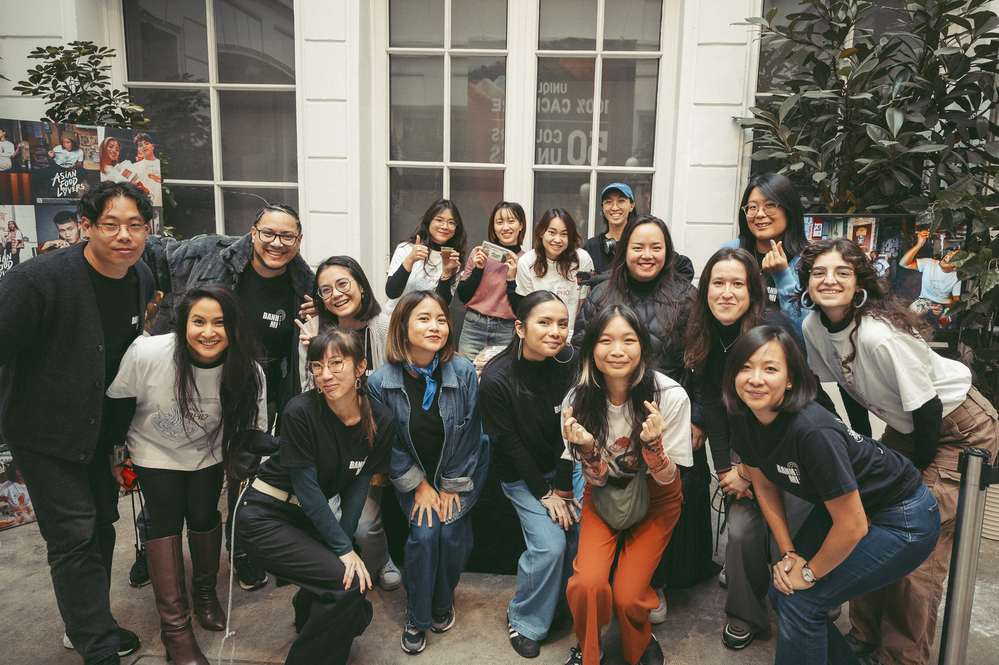
How prepared was your initial move abroad?
I was not very prepared or planned. I was just like: “Let’s just see what happens.”
What put confidence and trust in what I was doing was that I was with one of my best friends, so there was an anchor point so I didn’t feel like I was going alone. And then if Plan A doesn’t work, I can just go back home to Plan B in France.
I can always find a solution, you know? You’ve just got to be flexible and adaptable to situations. And the thing is, you can plan a lot of things, but a lot of times things don’t happen according to plan.
So after a while, I got better at just going with the flow. I think that’s probably a French thing – it’s become a part of my personality now.
Could you describe the differences in Vietnamese and French culture? Are there complementarities or any jarring points of difference?
I think, comparing French and Vietnamese people, both are fighters. They’re always fighting for something.
Vietnamese people have been through many wars. Despite predictions that Westerners would take over, the Vietnamese always ended up as winners. No one expected it, because physically, economically, they were not at the same level. But they are brave. They persevere. With the Vietnamese people, there’s always a way.
French people really enjoy the moment. They like to eat for hours. But Vietnamese people are also like that: talking, chatting, going to cafés, chatting again.
At the same time, I feel there is a difference. French people like to enjoy life: go to the cinema, enjoy culture, visit monuments. Vietnamese people, because of the economic situation, often feel like there’s no time for that. They have to earn money. Vietnam is the result of accumulated history – there are elements from French and American culture, as well as its own distinct Vietnamese identity. What impresses me most about Vietnamese people is that they are always ten steps ahead. When I had the chance to go to Vietnam thirty years ago, it was considered not very developed. Now, it’s one of the fastest-growing countries in Asia.
As a woman in Vietnam too, you can feel this fearlessness; an empowerment to be who you are. Women are becoming icons.
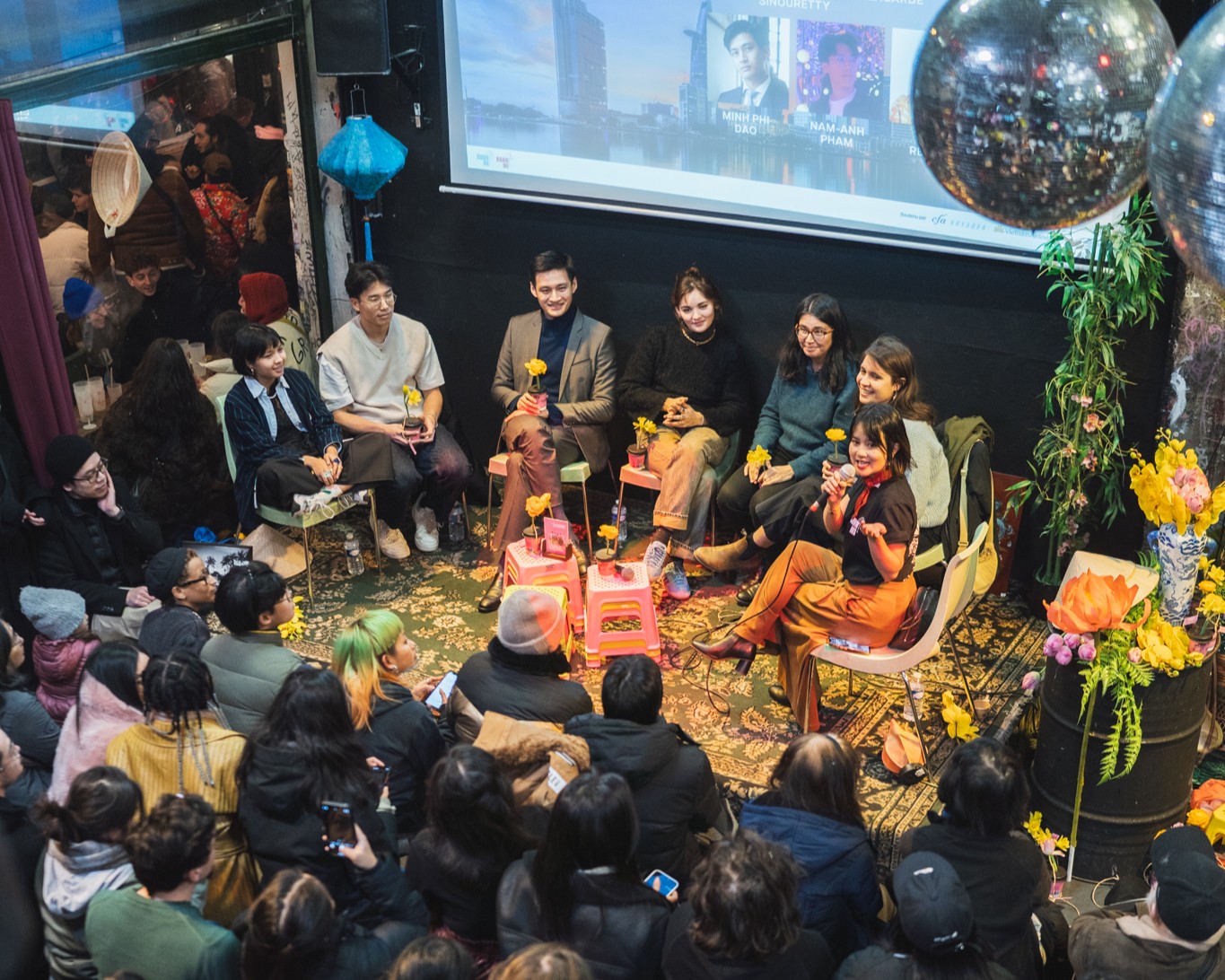
There’s a lot of historical complexity in the story of the Vietnamese diaspora in France dating back to colonial times. Can you tell us a bit about what you understood about that story, growing up as an overseas Vietnamese in France, and how it shaped your understanding of your place in French society?
At school we just learned about how France, or the French people, in some colonies like Indochina and Vietnam – brought things to the world. But we didn't learn much about how people could feel oppressed by that in some way.
The more I explore this topic, the more I can feel the different spectrums of colonization. There are people, even Vietnamese people, who have told me, “Oh, that was a very good time,” because the colonization lasted for more than a century and they grew up speaking French, surrounded by French people.
But other people have shared stories in which French people were condescending toward them, seeing them as inferior, especially those who were repatriated to France without having been born there, but who were considered French because of their husbands or some other reason. They had to go to France even though they didn’t know the country, and they ended up growing up in camps, separated from French society. They were told they were no longer Vietnamese.
These parts I didn’t know about at all. By meeting new people and hearing their stories through Banh Mi Media, I’ve gotten to know more and more perspectives about what colonial history really was. There are an infinite number of stories about how colonial history can impact an individual. And for me, rather than being judgmental about one version or another, I try to just absorb those stories and understand each perspective.
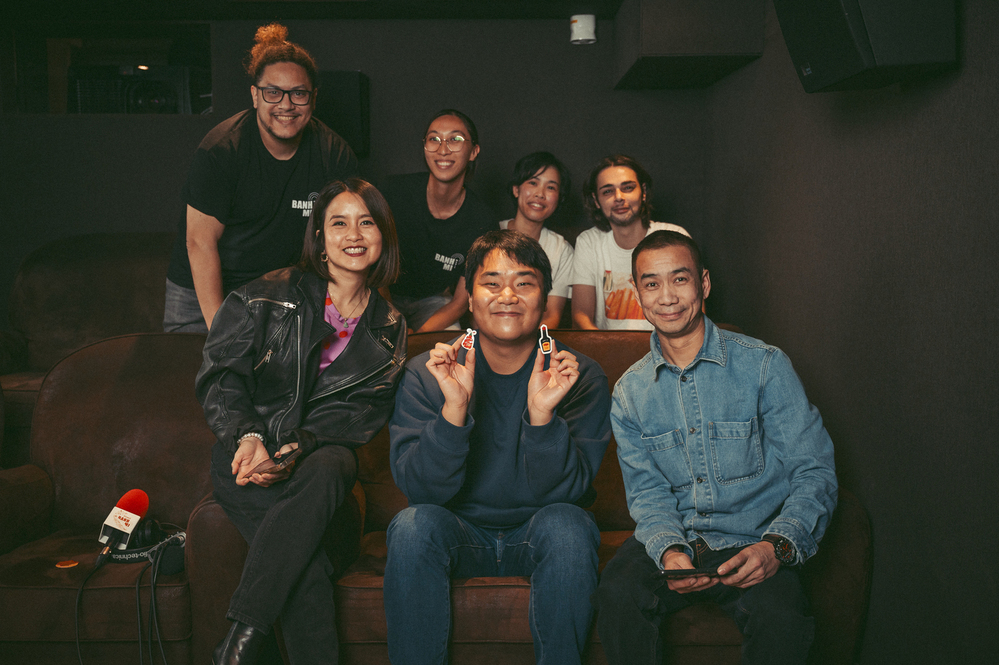
During your journey with Banh Mi Media, but also while discovering your personal history for yourself, was there an element of healing with your parents? Did they react in any particular way, or what’s that been like for them?
I think it’s something very mysterious for our parents to watch us revisit the past.
They are the kind of parents who left everything. They left their country twice in pursuit of a brighter future, to raise their kids, and to focus only on how to secure the family and provide everything we needed—materially. So for them, seeing us look back into the past is something that seems insane.
They come from a generation where growth and success were measured by your salary, the size of your house, or how many cars you owned. In that generational context, it's very strange to see your children do something that doesn’t really make money.
My mother, she’s very practical: she buys beef, cooks it, sells it. And at the end of every day, she has money. But me? I’m always carrying around my mics and recorder, going to interview people. It doesn’t look like anything financially concrete. I think she couldn’t understand it at first.
But I believe there’s another way to feed yourself. If I were in her generation, I probably would have done something like what she did. But in our generation, more and more people, especially those coming out of Covid-19, are losing a sense of meaning in their work. They start asking: What is the purpose of my work? Because one day I’ll be here, and the next day, I might not be. We don’t know what’s going to happen in life. So there’s been a kind of shift in mindset.
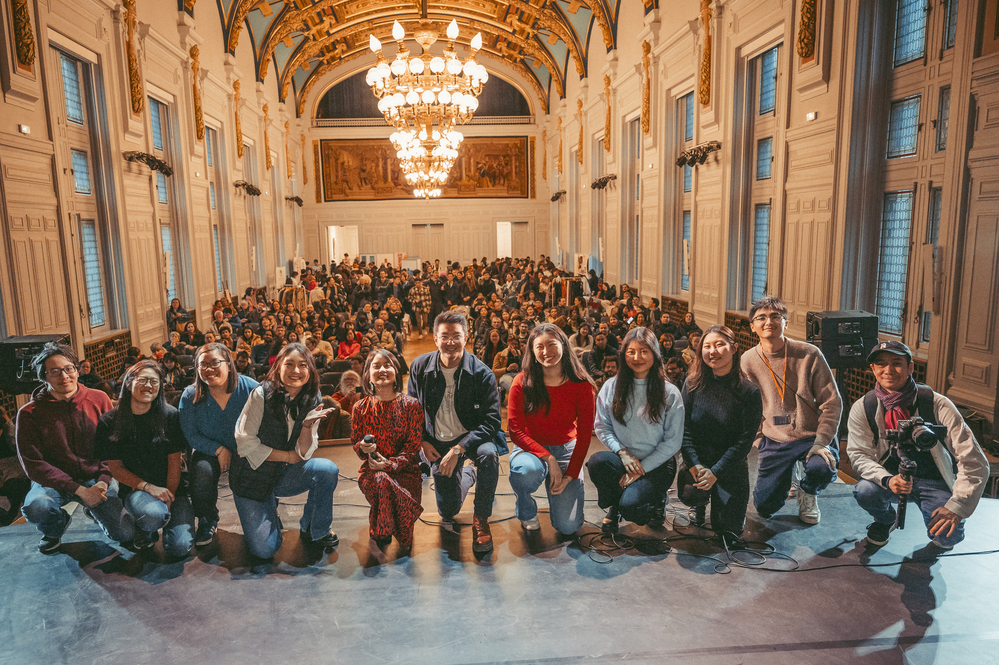
Now having had that experience of being abroad for 8 years, how essential would you say that experience of removing yourself from the place where you grew up was for solidifying your sense of self and identity?
Everyone has a different reason for wanting to re-connect with who they are.
The second generation of overseas Vietnamese, who are now secure and have been educated in Western countries, they’ve been asked to be – for example, Australian, or American or French – and now they’re opening their minds to and becoming more interested in their identity.
At the same time, we have the chance to travel more than before and to discover the country of our origins, because oftentimes those countries are still developing.
So there’s an alignment: why not come back to the country of my parents’ birth, now that I have the education and the means to do so? Culturally, economically, and geopolitically, it’s a fascinating moment to be here. The country has changed so much over the past 20 or 30 years — it’s no longer just the West that symbolizes opportunity. Vietnam has become a place of possibility, and a global crossroads where you can meet people from all over the world.
Vietcetera Open, starting from Vietcetera Goes Abroad, is an innovative event series organized by Vietcetera, traveling around the world to foster cultural exchange, professional networking, and showcase the inspiring stories of opportunity between Vietnam and the host countries.
This year’s event promises to reflect the Vietcetera spirit more than ever, making a meaningful and long-lasting impact from reshaping mindsets and influencing how Vietnamese people perceive themselves in a globalized world, to opening doors for promising partnerships and professional growth among individuals and organizations of Vietnamese heritage.Upcoming schedule in Europe:
- Paris, France – July 22, 2025
Venue: Goku Asian Canteen, 27 Boulevard du Temple, 75003 Paris
Tickets link: [Get tickets for Paris]
- Berlin, Germany – July 24, 2025
Venue: Manon Brasserie Nouvelle, Steinplatz 4, 10623 Berlin
Tickets link: [Get tickets for Berlin]
We extend our sincere thanks to Janus Executive Search & Talent Advisory for partnering with Vietcetera in this event.
